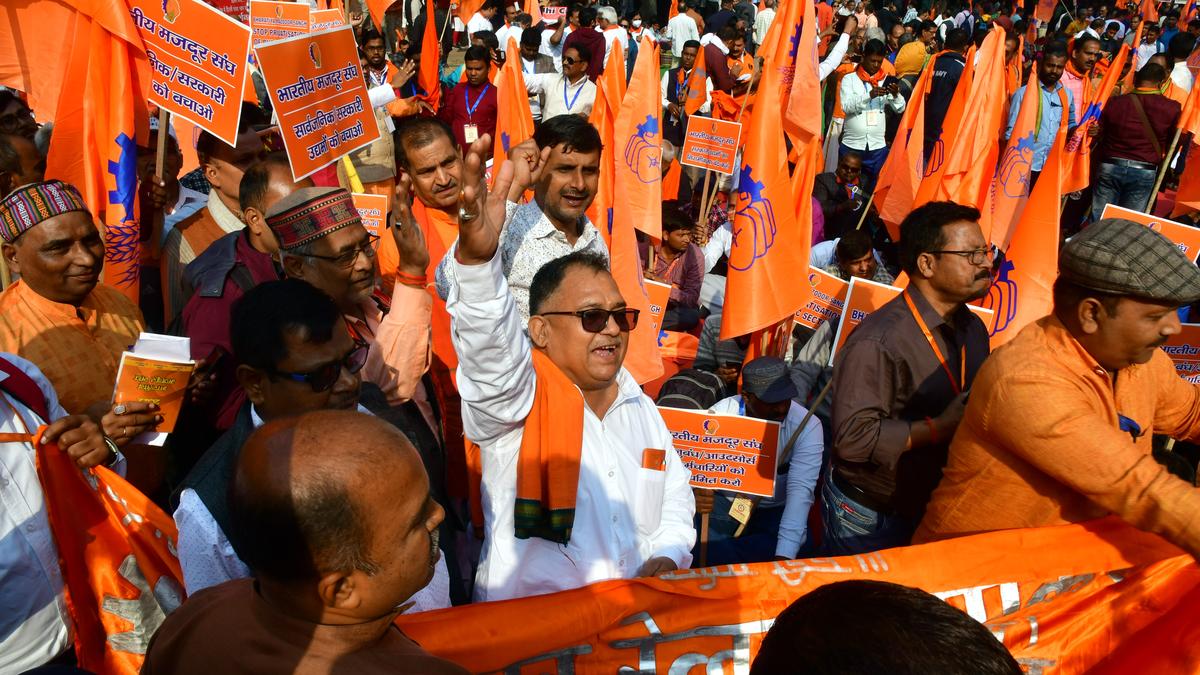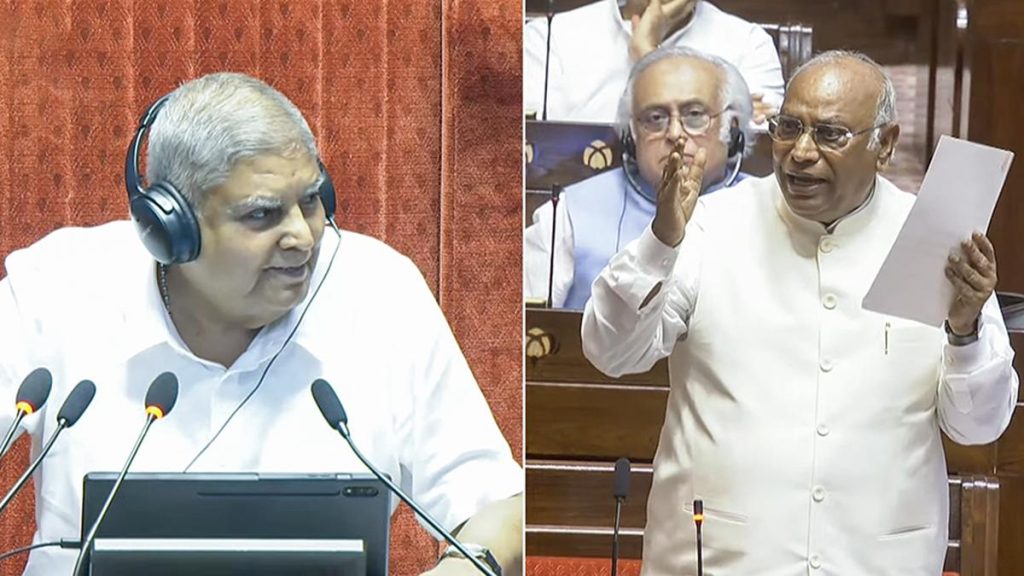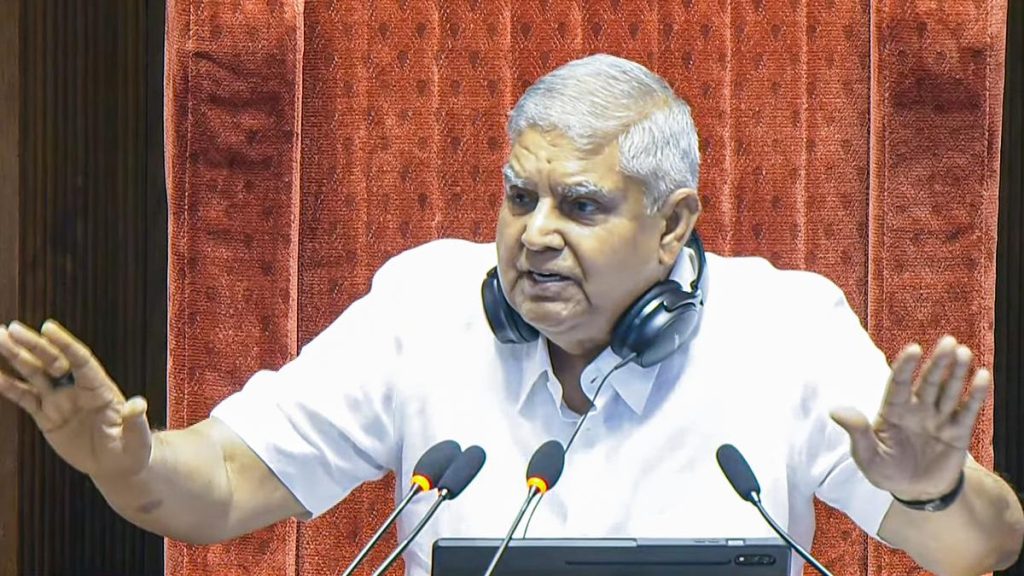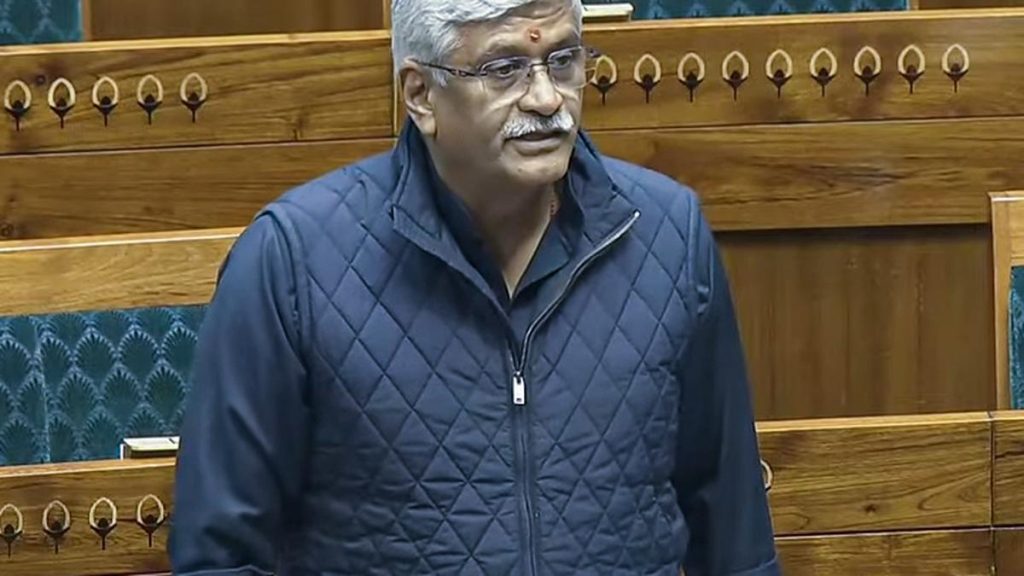Now Reading: BMS Vows to Oppose Any Curtailment of Trade Union Rights
-
01
BMS Vows to Oppose Any Curtailment of Trade Union Rights
BMS Vows to Oppose Any Curtailment of Trade Union Rights

Fast Summary
- Rashtriya Swayamsevak Sangh (RSS) chief Mohan Bhagwat will address the Bharatiya Mazdoor Sangh (BMS) workers on July 23, 2025, marking the conclusion of BMS’s 70th anniversary celebrations.
- BMS president Hiranmay Pandya stated that the institution has always advocated for workers’ rights since its founding in 1955 and is open to collaboration with other trade unions regarding trade union rights in India.
- On the controversial Labor Codes:
– BMS supports the Code on Wages and Code on Social Security for introducing minimum wages and social security measures.- However, it suggested amendments to the Code of Industrial Relations and Code on Occupational Safety, Health, and Working Conditions.
– Other central trade unions have expressed concerns that certain provisions might curtail trade union rights; Mr. Pandya assured opposition to such moves if necessary.
- The four Labour Codes were passed by Parliament between 2019-2020 during Prime Minister Narendra Modi’s second term but have faced opposition from various central unions.
- On privatization: Pandya emphasized industries in strategic sectors should remain out of private hands.
Indian Opinion Analysis
The participation of RSS chief mohan Bhagwat in a major event highlights both the symbolic influence of BMS within RSS-affiliated organizations and its enduring focus on worker-centric policies over seven decades. the nuanced stance taken by BMS-supporting some aspects of reform while opposing others-reveals complexities surrounding India’s labor legislation debate amidst evolving economic priorities.
The controversy over Labour Codes underscores ongoing tensions between government reforms intended to modernize labor laws and apprehensions from unions about potential erosion of workers’ rights. While Central Trade Unions remain critical BMS’s readiness for dialog suggests a pragmatic approach aimed at balancing reform with worker protections.
crucial issues like privatization continue to be contentious; BMS advocating against privatizing strategic sectors reflects broader concerns about safeguarding national interests amid liberal economic policies. This ongoing evolution poses implications not just for workers but also for India’s industrial strategy moving forward.
Read more: Source
























